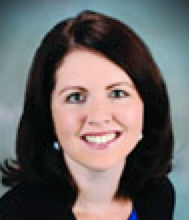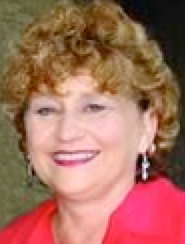By Karen S. Karp, Sarah B. Bush, and
Barbara J. Dougherty, posted November 2, 2015 –
Ed. note: In the November 2015 issue of Mathematics Teaching in the Middle School,
authors Karen S. Karp, Sarah B. Bush, and Barbara J. Dougherty initiated an
important conversation in the middle-grades mathematics education community. We
are dedicating this discussion space as a place where that conversation can
continue.
In our article,
“12
Math Rules That Expire in the Middle Grades,” we point out 12 rules commonly taught in middle-grades mathematics classes
that do not hold true over time; in fact, these rules “expire.” For example . .
.
Rule 1. KFC:
Keep-Flip-Change
When learning to
divide fractions, students are sometimes taught to KFC (Keep-Flip-Change) or
told “Yours is not to reason why, just invert and multiply.” Although both versions
align with the standard algorithm, students might overgeneralize this rule to
other operations with fractions. Additionally, these mnemonics and sayings do
not promote conceptual understanding, making it challenging for students to
apply them in a problem-solving context. Instead, division of fractions can be
linked to whole-number division by asking how many groups of the divisor make
up the dividend. Although students will eventually use the algorithm, they
should gain a conceptual understanding of dividing fractions through the use of
physical models or other methods, such as the common denominator strategy. Expiration date: Grade 6 (6.NS.1)
See the article
for the other rules that expire.
We also provide instances
of expired language and notation. For example, using the term “reducing
fractions” may cause students to think that the fraction value is getting
smaller. Instead, we should use the term simplifying
fractions, or instruct students to write
the fraction in simplest form or in
lowest terms.
Similarly, plugging in a value for a variable is
not a mathematical term. Instead, the language used should be substitute a value.
See table 2
(p. 214) in the published article for additional examples.
Use the comment
section that follows this blog post to submit additional instances of “rules
that expire” or expired language that our article does not address. If you
share an example, please use the format of the article:
1. State the
rule that has been shared with students.
2. Discuss how
students overgeneralize the rule.
3. Provide
counterexamples, noting when the rule is untrue or unhelpful.
4. State the
“expiration date” or the point when the rule begins to fall apart for many
learners.
If you submit an
example of expired language that was not in the article, include both “What is
stated” and “What should be stated.”
By building a
schoolwide plan for the consistent and precise presentation of rules,
terminology, and notation used by all teachers, students will never find that
something in their past instruction is no longer accurate. As we avoid these 12
Rules That Expire, we instead find ways to present a seamless and logical world
of mathematical ideas.

Karen S. Karp, [email protected], is a visiting professor at
Johns Hopkins University in Baltimore, Maryland. She
is professor emeritus at the University of Louisville in Kentucky, a past
member of the NCTM Board of Directors, and a former president of the
Association of Mathematics Teacher Educators. Her current scholarship focuses
on teaching interventions for students in the elementary and middle grades who
are struggling to learn mathematics.

Sarah B. Bush, [email protected], an associate
professor of mathematics education at Bellarmine University in Louisville,
Kentucky, is a former middle-grades math teacher who is interested in relevant
and engaging middle-grades math activities.

Barbara J. Dougherty, [email protected], a
research professor for mathematics education at the University of
Missouri–Columbia, is a past member of the NCTM Board of Directors and the
editor for the Putting Essential
Understandings into Practice series. She is a co-author of conceptual
assessments for progress monitoring in algebra and curriculum modules for middle
school interventions for students who struggle.